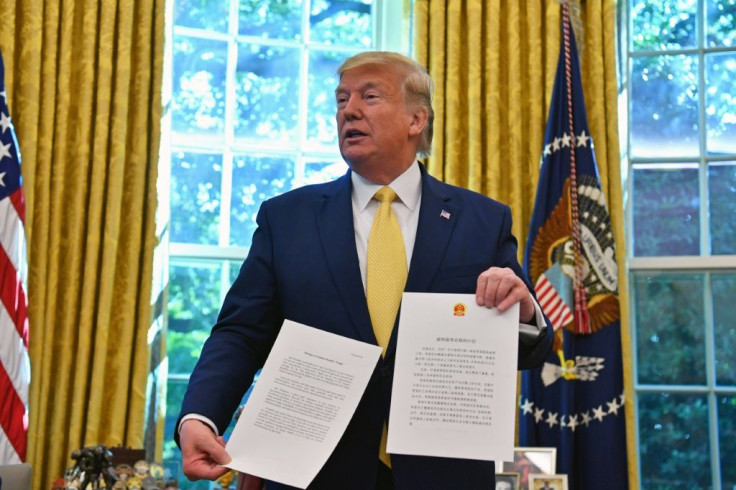China-US Trade War: Beijing Demands Tariff Rollback As Part Of New Trade Deal

Chinese government officials are demanding the U.S. pare back tariffs as a prerequisite to any new trade deal.
Gao Feng, a spokesman for China’s Ministry of Commerce, said during a press conference Thursday in Beijing that since the trade war began with additional tariffs, it "should be ended by canceling these additional tariffs. This is an important condition for both sides to reach an agreement."
Gao added that if both nations can reach an initial agreement, the “level of tariff rollback will fully reflect" its importance.
Gao offered some faint hope by saying, “China is willing to work together with the U.S., resolving each other’s core concerns properly on the basis of equality and mutual respect and creating conditions for the phase 1 deal.”
Prospects for when phase 1 of the deal will begin are unclear, given that a planned mid-November meeting between U.S. President Donald Trump and China’s Xi Jinping at the Asia-Pacific Economic Cooperation summit in Chile was scuttled by that country’s leader due to the risks posed by ongoing civil unrest.
Meanwhile, trade negotiations between the world’s two largest economies continue to drag on.
On Tuesday, Trump raised the stakes by again threatening to “substantially raise” tariffs if a trade deal is not concluded soon.
Speaking before the Economic Club of New York, Trump declared: “My administration has taken the toughest-ever action to confront China’s trade abuses. We are taking in billions and billions of dollars in tariffs that China is paying for. China is paying because they’re devaluing their currency to such an extent and they’re pouring tremendous amounts of cash into their system.”
However, Trump also noted that “a significant phase 1 trade deal with China could happen. It could happen soon.”
The U.S. is scheduled to impose a 15% tariff on about $156 billion of Chinese goods Dec. 15, including such popular items as cellphones and laptop computers.
Still, the U.S. refrained from implementing a scheduled 5% tariff hike on $250 billion worth of Chinese goods in October. As part of that agreement, Beijing agreed to buy $40 billion to $50 billion in U.S. farm products and to make certain concessions with respect to intellectual property issues.
© Copyright IBTimes 2024. All rights reserved.





















